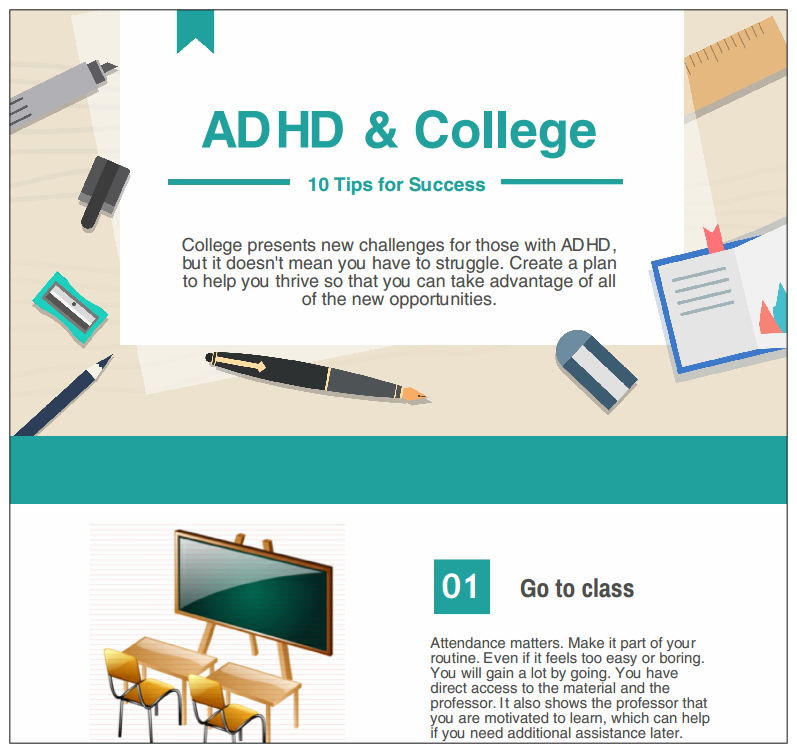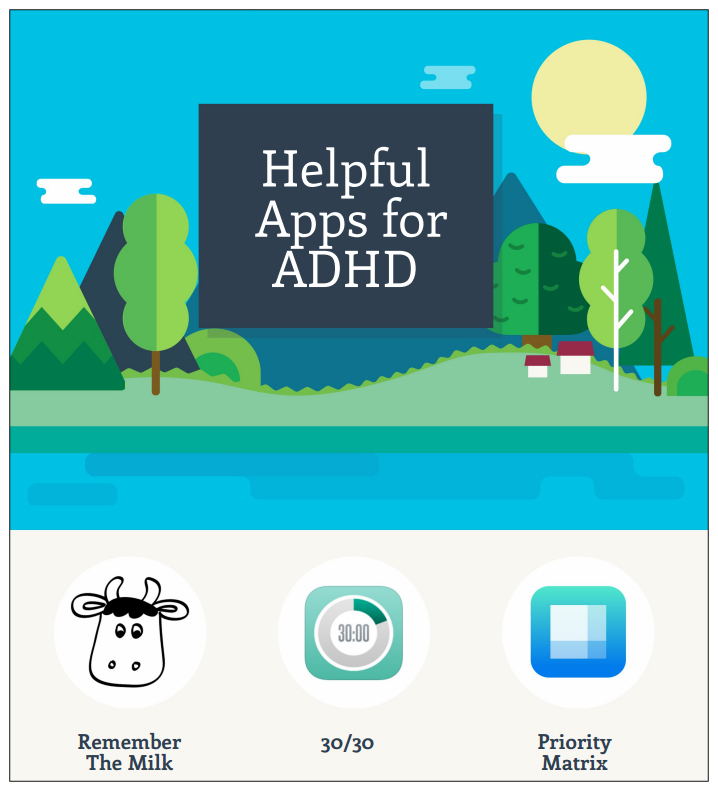
Introduction
Attention Deficity Hyperactivity Disorder (ADHD) is a condition that becomes present in early childhood and results in difficulties with attention, concentration, focus, distraction, impulsivity, and hyperactivity. The transition to college can be difficult if you have ADHD. Your parents and your high school may have provided a lot of structure (e.g. specific times to study or do homework, maintained a consistent schedule, etc.). College provides a lot more freedom, self-regulation, setting your own priorities, and a lot more distractions! Although ADHD symptoms are present in childhood, many students don't receive a diagnosis until coming to college. If you have ADHD, you may work much harder and longer on academics than your peers and they still get better grades. You might read the same textbook passage 4-5 times and still not remember the content. You may forget or come late to classes and appointments.
Common ADHD Symptoms
- Difficulty starting and completing tasks on time
- Difficulty paying attention and concentrating for extended periods of time
- Feel restless and fidgety
- Blurt out answers before hearing the entire question
- Have difficulty waiting your turn to talk
- Easily distracted in conversations
- Difficulty following specific instructions and catching all relevant details
What You Can Do If You Think You Have ADHD
If you consistently struggle with similar issues, you may consider completing a free on-campus screening and referral interview to learn more about on- and off-campus resources for students. The screening will not yield a diagnosis. Rather, it assists in the decision-making process for recommending next steps. A common next step is a comprehensive assessment used to rule out other mental health issues and learning disabilities that can produce symptoms similar to ADHD. Medical providers will often request that you have an assessment before prescribing ADHD medication, and you can ask your doctor for a referral to a clinician who does assessments. If you are interested in pursuing accommodations on campus (e.g. getting more time to take tests, taking tests in a less distracting location, etc.), you will need to go visit the Office of Disability Services (ODS) to learn about assessment documentation and the process for getting registered with ODS.
Additionally, you can try to improve your study skills and learning strategies. You can schedule an appointment for free academic coaching, or seek out the free tutoring services on campus.


